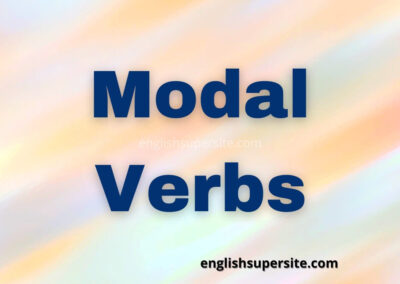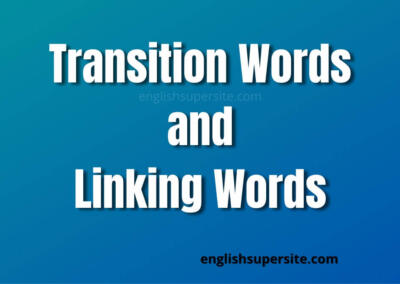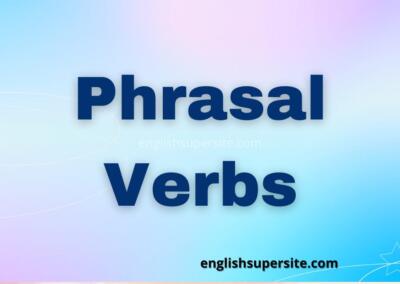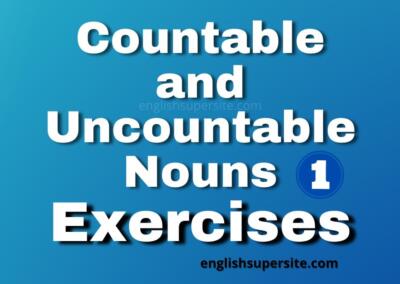
Modal Verbs
Modal Verbs: Express Ability, Possibility, and Necessity
Modal verbs are auxiliary verbs that express meanings like ability (e.g., “can”), possibility (e.g., “might”), and necessity (e.g., “must”). They show the speaker’s attitude toward the action or state described by the main verb. Modal verbs don’t change form based on tense or subject (e.g., “He can,” “I must”). Common modal verbs include “can,” “may,” “shall,” “will,” and “would.”
Mastering modal verbs helps you express certainty, obligation, and ability in both writing and speaking.

Modal verbs are auxiliary verbs in English that are used to express the speaker's attitude or opinion about the ...

Learn here the basics of English Grammar. Parts of Speech are nouns, pronouns, adjectives, verbs, adverbs, ...

Transition Words and Linking Words describe the relationship between two statements, phrases, sentences, or paragraphs.
Related Posts

Extremely popular in spoken English, phrasal verbs can be confusing sometimes due to their definitions that are ...

Countable and Uncountable Nouns - Exercises 1 - Practice exercises with countable and uncountable nouns. Countable ...

Check your English proficiency with this Fast English Test 2. Check your progress in REAL TIME. English Quiz 2.


